August 2007
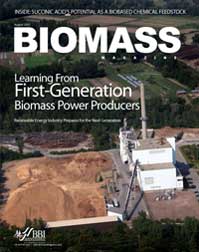 View Full Print Edition
View Full Print EditionBusiness Briefs
Columns
Editor's Note
By Tom Bryan
EERC Update
By Chris J. Zygarlicke

Editor's Note
By Tom Bryan

NBB In Sight
By Donnell Rehagen, NBB Chief Operating Officer
Featured
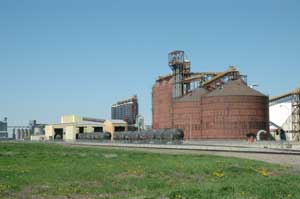
One Man's Trash Is Another's Power Source
By Nicholas Zeman
A nationwide movement to capitalize on the energy producing power of garbage is driven by a strong market for renewable energy, a desire to clean up the environment and to generate a revenue stream.

The Quest to Commercialize Biobased Succinic Acid
By Jessica Ebert
High-priced petroleum brings the finite nature of this resource to a striking reality. Out of necessity comes research into alternative fuels and the myriad of materials made from petroleum. Since the mid-1990s, succinic acid has garnered interest as a petroleum alternative for the manufacture of everything from de-icers to pesticides.

Harnessing the Power of Biomass
By Susanne Retka Schill
Biomass power producers aren't pausing while current U.S. federal policies favor renewable fuels development in an effort to reduce the nation's dependence on foreign oil. Renewable power will play a vital role in the world's attempts to reduce greenhouse gases. Now that the first-generation technology has matured, work continues on developing new technologies based on lessons learned.
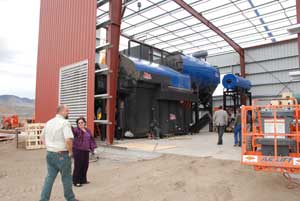
Fuels for Schools and Beyond
By Anduin Kirkbride McElroy
Fuels for Schools was started in Vermont as a statewide initiative to promote and encourage the use of renewable, local natural resources to provide reliable heat for schools. It has since grown into a multistate program, and has recently expanded its scope beyond schools.
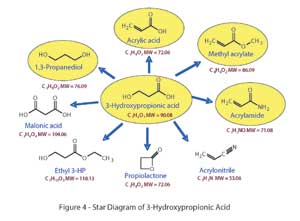
The Elusive Biorefinery
By Jerry W. Kram
Replacing fossil fuel-based products such as plastics and solvents with biomass-based equivalents has long been a goal of the biobased industry. The vision is a biorefinery-the equivalent of an oil refinery-producing many chemicals with hundreds of end uses. So, why aren't such facilities being built?

Daring to Design the Vehicle of the Future
By Bryan Sims
The 2007 Challenge X: Crossover to Sustainable Mobility competition enables today's students to shape tomorrow's vehicles.

Within the Petroleum Distribution Network
By Anduin Kirkbride McElroy
A partnership between Kinder Morgan Energy Partners LP and Green Earth Fuels LLC literally places biodiesel production within the petroleum distribution network, right next to the pipelines. Kinder Morgan believes this would be effective in taking biodiesel out of its niche fuel status.
Current and Future Passenger Diesels
By Ron Kotrba
Automakers across the globe have been retooling their passenger diesel powertrains-tweaking fuel injection, timing and combustion specs while adding sophisticated advanced emissions control gear-to meet new U.S. and global regulations on particulate matter and nitrogen oxides.
Motor City Methyl Esters
By Nicholas Zeman
DaimlerChrysler Corp., NextEnergy Center and Biodiesel Industries Inc. are cleaning up a brownfield site in Detroit to grow feedstocks for biodiesel production. Developing future fuels in Michigan is critical as it's the U.S. automobile manufacturing hub. Furthermore, if the project is successful it could serve as a model for the "greening" of hazardous waste sites nationwide.
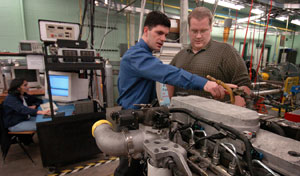
The Ideal Engine
By Jessica Ebert
An engine that produces near-zero emissions, gets great fuel economy and runs on fuels produced in the homeland is the dream of environmentalists, engineers and those who seen an energy-independent economy. Scientists across the globe are close to taking this concept from the realms of REM sleep and wishful thinking to plunking it into reality.







